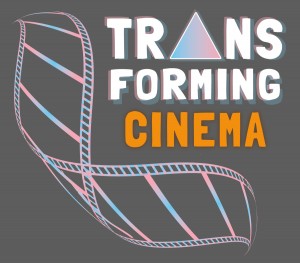Transforming Cinema is a project by E.D.E.N Film Productions, a Sheffield-based organisation who make “films, videos, and campaigns with a difference”. E.D.E.N’s newest project is about giving local people who identify as transgender and gender nonconforming a platform on which to voice their opinions to their local community. The project, which aims to culminate in a short film festival of the same name, will come to a head later this year. I spoke to Founder and Managing Director of E.D.E.N. Claire Watkinson about the project and what it means to both her and the local community.
Hello Claire, lovely to speak to you. First off, tell us a little bit about yourself and how you came to found E.D.E.N. Film Productions.
Lovely speaking with you too! I studied Contemporary Film and Video at Manchester Metropolitan and have been a freelance filmmaker for five years. I set up E.D.E.N, which stands for Equality, Diversity, Education and Nurture, in 2013 because of my passion for filmmaking and my desire to create an organisation that would work closely with the lesbian, gay, bisexual and transgender (LGBT) community. The aim and ethos of E.D.E.N is to provide members of the LGBT community with filmmaking skills which they can then use to produce films to tell their own stories.

Transforming Cinema, your current project, is a trans-focused film festival. Why do you believe it’s important for an event such as this to take place?
In the past few years we’ve seen an increase in positive trans and gender nonconforming representations in the media but we believe it’s far from enough. There is still a lack of trans voices being heard and, ultimately, a lack of understanding throughout society.
The transgender community faces widespread prejudice, discrimination and inequality and this is made evident not least in the media. Trans Media Watch research from 2010 found that 95% of respondents felt the media did not care how trans people are portrayed and 78% believed the portrayal of trans people was inaccurate. Depression, self-harm and suicide are some of the issues that affect trans people to a much higher degree than cisgender people.
Positive media representation is increasing, but often the messages we do hear are still negative, ignorant and transphobic and it’s these messages which we hope to challenge through Transforming Cinema.
In what ways do you think people of all genders, identities and sexualities could benefit from the Transforming Cinema project?
We’re hoping the project will help to create a stronger community as the wider general public will be invited to watch the films submitted to the festival, which in turn, we hope will raise awareness of important issues. It will also provide an outlet for aspiring filmmakers, who will be able to submit their work and form connections at the event, as well as the local community who will benefit as we bring another independent film festival to Sheffield, a city well-known and respected for its documentary filmmaking.
Is there an active trans community in Sheffield?
Yes, there is. During our previous project, Trashing Transphobia, fifteen members of the LGBT community were trained in filmmaking and interviewing skills, which they used to produce a feature-length documentary called Trashing Transphobia. The participants were involved with the planning, production and post-production of the film.
During the filming process we filmed with a range of organisations active within the trans community. This included Trans Active, an initiative that helps the trans community socialise as well as improve their fitness and mental wellbeing through sport. T-Boys, which is a Yorkshire-wide support and social group for any person assigned female at birth who considers themselves to be on the trans spectrum or is questioning their gender, is another group featured in the film.

You’re looking for submissions from the local community, what kinds of things would you like to see landing in your inbox over the next few months?
We’re looking for a wide range of material: narrative, documentary, experimental and animated films, so the type of film is irrelevant, however all films submitted should in some way discuss or explore transgender / nonbinary / gender nonconforming / intersex / genderqueer themes.
Whether you are a first time filmmaker or an experienced filmmaker: we want your films!
Are people who don’t have the equipment to make their own films able to access cameras, for example, through E.D.E.N?
The film equipment we have is unfortunately tied up in filmmaking projects, however we encourage film submissions made using all types of technology and cameras including mobile phones and tablets. It’s strong ideas that we’re looking for and we want filmmakers that have a wide range of experience to submit films so please do not be put off submitting just because you don’t have super fancy equipment.
And if you’re really struggling to get hold of equipment then please do get in touch as we regularly run free filmmaking workshops and we can try to get you involved in one of our projects!
And finally, how can people find out more about getting involved in the project – whether by submitting a short film of their own or volunteering?
You can find out more information on Transforming Cinema’s website, www.transformingcinema.co.uk or by getting in touch via email (info@edenfilm.co.uk) or social media (@EDEN_F_P on Twitter and @TransformingCinema on Facebook). You can also find out information on E.D.E.N’s website, www.edenfilm.co.uk. We look forward to hearing from you!
Words by Danielle Mustarde
Instagram: @wordsbydanielle
Images courtesy of Transforming Cinema
